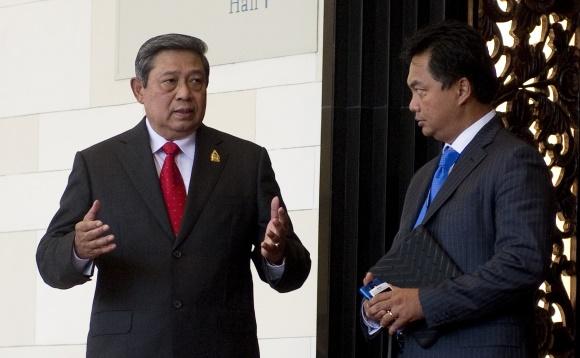
One problem that I found really troublesome at my embassy was the frequent delays in receiving earmarked funds, and this impacts performance in the field. This is a common issue within our bureaucracy. The Ministry of Finance really needs to fix this annoying problem. On the other hand, our ambassadors and diplomats must also do their part. There are quite a few diplomatic missions that are slow in disbursing their budgets. This is important because budgets can also affect morale.
But it must be said that raising the budget alone will not solve our problems. We need to ensure that our diplomats are fine-tuned, and that they have the right mental software and skills to do their job well. I am encouraged to see so many exceptional young diplomats in the foreign ministry, and we owe it to them to develop a strong system of meritocracy where every diplomat has an equal chance to advance; a system that can open doors for the best and brightest to lead. We must cultivate 21st century Indonesian diplomats who are open-minded, internationalist, intellectually creative, superb at lobbying, have good networking skills, are competent in foreign languages, can compete in any diplomatic settings and above all are patriotic.
Some media reports have suggested that ASEAN is going to change because the next Indonesian president will give less priority to the grouping. Do you think this is true? Neither of the candidates should forget that the year of the ASEAN Economic Community will arrive just a few months after their inauguration, and a good number of Indonesians still do not fully comprehend what it is all about. A massive public campaign about the ASEAN Community is absolutely necessary so Indonesians know what it is and what it is not. When I did my tour across university campuses in Indonesia, I usually asked the audience to raise their hands if they knew anything about the ASEAN Community, and the response was always motionless. The most urgent task for the next president is making sure that he goes through the checklist of policy issues to ensure that our people are ready for the ASEAN Community. Some of the items in the action plan for it have been implemented but others are proceeding slowly, or are even stagnant. The elections this year have somehow distracted us from focusing on them.
If the next president opts to be less involved with ASEAN, it will be at our own peril. We are now in a position where every ASEAN member believes Indonesia is best placed to lead. They have said so publicly in so many forums that it has become conventional wisdom.
We should take this not as a point of flattery, but as the basis of a strategic imperative to keep ASEAN as the cornerstone of Indonesia's foreign policy and worldview. Southeast Asia is now in great demand in the global chess game. Southeast Asia is key to the US pivot, or rebalance policy; in India's “Look East” policy; in China's regional design; in Japan's evolving security posture; in South Korea and Australia’s foreign policy; and so on. And Indonesia is at the center of Southeast Asia to the point that when the world thinks of Southeast Asia it sees Indonesia at the heart of the region. No Indonesian leader can afford to dismiss ASEAN. I think both Jokowi and Prabowo will be sensible enough to realize this.







 resized.png)
